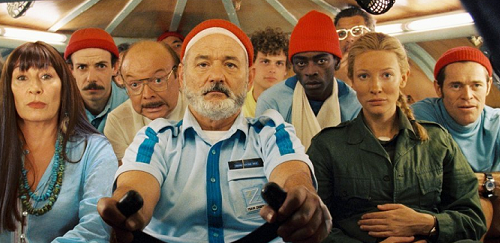As they say, everybody’s a critic. As they should say immediately afterward, “Not everybody’s good at it, but there you go.”
Criticism is difficult to perform intelligently. I should know; I’m a particularly shitty critic myself. But every so often some anonymous stranger on the internet says something that — against all odds — turns out to be extremely insightful. From there, a great series of ongoing criticism can be born, and I wanted to take some time to share with you four of my absolute favorites.
This is not just a list of links…these are sincerely fantastic critical explorations that I endorse wholeheartedly.
1) Fred Clark’s Dissections of the Left Behind series.
For the past nine years (incredible but true) Fred Clark of Slacktivist has been analyzing page by agonizing page the entirety of the Left Behind series. For those who are unfamiliar with the series, here it is in a nutshell: God loves me, but not you. Fred, being a religious man himself, is appalled by the many levels of spiritual, literary and humanitarian stupidity on display in these pages, and he pulls them apart gorgeously. It’s a discussion about bad writing, yes, but it’s also a learning experience. I challenge any writer to come away from this series without being significantly more aware of the mistakes he or she is already making. You can check out his archive starting here, but many of the posts have annoyingly gone missing thanks to a change in URL. Regardless, he’s only recently begun the third book in the series, Nicolae, Rise of the Antichrist, and you can read these posts as they go up…which is the best way to enjoy them. First post here.
2) Dead Homer Society’s Discussions of Modern Simpsons.
We can argue all day about when The Simpsons officially became a shadow of its former self, but there’s really no arguing against the fact that it is a shadow of its former self. Dead Homer Society offers a shockingly sharp look at the current state of the show, with every new episode handled over at least four posts: a preview, a next-day recap, a feature that compares and contrasts it with an episode from the show’s golden years, and a transcript of a live chat discussing all aspects of the episode. It’s a surprisingly respectful way of conversing about a show that so clearly disappoints them in every way, and it makes for fascinating reading. Or, at least, it did. Yes, for Season 24 Dead Homer Society will be scaling back coverage, which is disappointing…but they will still be in operation, and — likely — just as worthy of your and my time. They’ve also released a fantastic new ebook called Zombie Simpsons: How the Best Show Ever Became the Broadcasting Undead that you can buy from Amazon or read for free here.
3) ProtonJon’s “Let’s Play Superman 64.”
The Let’s Play is a strange beast. I’ve recorded some myself, but even so I can’t say that I’m sure why people want to watch as somebody else plays video games for them. ProtonJon’s brilliantly exhaustive trek through Superman 64, however, is a glorious exception to a tedious norm. Two years into the project and with only 6 stages under his belt, it’s clear that ProtonJon has a lot to say. He spotlights glitches from the games, discusses characters both inside and outside of their roles in this adventure, and generally goes out of his way to provide fascinating — and sometimes exclusive — information along the way. Superman 64 is widely reviled as one of the worst video games of all time…and rightly so. ProtonJon can’t — and won’t — defend the game on its merits…but he sure does have a lot of fun pulling it apart to learn everything he can about the many, many ways in which it went wrong. From interviewing the developers to playing it alongside other Superman games to comparing it to unreleased beta footage, ProtonJon has taken an effortless YouTube staple and elevated it to the status of genuine — and remarkable — documentary. Tune in.
4) The Annotated Sonichu.
From the moment I started this site, I wanted to do a Noiseless Chatter Spotlight on Sonichu, the addictively weird creation of Christian Weston Chandler…also known as Chris-Chan. Sonichu himself is an unabashed hybrid of Pikachu and Sonic the Hedgehog, and Chandler’s comic is meant to follow him along on his exciting adventures. Instead, though, the comic sidelines Sonichu in favor of Chandler himself, who appears on the page — as he does in real life — as a man searching for love, and unable to grasp why he hasn’t found it already. Its childish art style and bizarre narrative flow make for an easy mockery, but The Annotated Sonichu takes its source material seriously, and discusses page by page the many direct carryovers from Chandler’s personal life that shape and enrich CWCville, the town in which Sonichu takes place. Family members, friends, his dead dog and strangers online who pretend to be females interested in him all make their way into the comic at some point, where Chandler uses his narrative authority to cope with them in the only way he knows how: with Crayola markers. Truly fascinating, and an unexpectedly respectful deconstruction.




